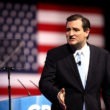It was Halloween, and among the trick-or-treaters at the door came a 10-year-old neighbor, masquerading and masked as George Bush. He was wearing a sign that said, “I’m a loser.” My doorway Halloween ration is usually one, but I gave him two candy bars.
Then I discovered that he is a politically astute junior high schooler. He said he knew it might be a month, or more, after Election Day—”like it was last time”—before anyone really knows who won, because “it’s going to be another Florida!” I gave him another candy bar.
The Sunshine State’s reputation as an election mangler is international. A recent editorial cartoon in the Congress-watching Washington tabloid The Hill showed two Afghan men scanning a local newspaper with these headlines: “Free and Fair Elections Are Not Guaranteed” and “Voter Fraud and Intimidation Is a Serious Threat.” One of the men says: “It could be worse. At least we don’t live in Florida.”
In fact, managed by United Nations monitors the ballot counting in October’s Afghan election, which engaged millions of people—men and women—who had never before voted seems so far to be a win for Hamid Karzai, the U.S.-backed interim president. But not without some continuing insurgent violence and American troop deaths.
The attacks in Afghanistan were of low intensity compared with the continuing—and rising—attacks, bombings, kidnappings and beheadings in Iraq. That put the Bush administration’s responsibility for an unjustified, crusader-style war high on the presidential debate agenda.
Americans killed or wounded in Iraq now total more than 8,000. And although it is a gruesome tally that is under-reported by the Iraqi interim government—U.S. officials have asked for their silence about it—the New York Times reports that 3,040 Iraqis were killed during the 22 weeks between April 5 and September 6 of this year, including 159 women and 128 children, according to Times reports. From October 11 to 17, 208 Iraqis were killed. Some died in American military attacks on suspected insurgent targets.
Last month, a stunning three-part series by Michael Gordon, the New York Times‘s chief military correspondent, was sardonically headlined: “Catastrophic Success.” It chronicled the Bush administration’s miscalculations in Iraq—the foreign troops that never came and the insurgent uprisings, to name a few.
There was also the discovery by the Washington Post that the former top U.S. commander in Iraq, Lt. Gen. Ricardo Sanchez, had warned the Pentagon last winter that his forces lacked so much essential gear, including re-enforced body armor for soldiers, that “I cannot continue to support sustained combat operations.” That warning came months before news reports appeared about members of an Army reserve unit who had refused to take a large fuel convoy of trucks into a dangerous area around Baghdad because the vehicles were unserviced and there were no armed vehicles to accompany them.
Bush has not acknowledged any mistakes in Iraq, giving Kerry the chance to say, and to keep repeating, that the president and vice president “may well be the last two people on the planet who won’t face the truth about Iraq.”
Others have spoken, including some top Bush appointees. Belatedly these critics of the Iraq fiasco, silent until now, have surfaced in the press. Paul Bremer, a former U.S. administrator of occupied Iraq, says, “We never had enough troops on the ground” to prevent looting and lawlessness—and now the lethal anti-American guerrilla war.
Charles Duelfer, chosen by the White House to make the “final-final” finding on Iraq’s missing weapons of mass destruction, reported that when Bush ordered the U.S. invasion of Iraq it had no nuclear or biological weapons.
AN ELECTORAL FIASCO—Proof that another “Florida” may be coming here at home, and that it is going to take more than candy bars to avoid the second presidential election debacle of this century, comes in reports that thousands of lawyers are being dispatched around the country by both liberal and conservative groups—1,000 of them by the Bush Justice Department—to monitor trouble at polling places.
It was no surprise, but some debacles in Florida began with the “early voting” installed there this year, allowing people to vote two weeks before Election Day. Early voting brought early problems. There were computer glitches and, probably fortunately for those who thought they would try it, many could not find or reach the few early polling places.
The Republican National Committee has said it is sending thousands of lawyers to monitor 30,000 precincts in the most hotly contested states. Overall, the New York Times says, it all makes this “the most litigious, lawyer-fraught election in history.”
Some of what the Republican monitors find may be embarrassing. Complaints that Republican officials are trying to disenfranchise Democratic voters have been filed in key swing states like Florida, Pennsylvania, Wisconsin, Nevada, Oregon and Ohio. Ohio is a big legal battleground because voter registration has soared to a record number of 7.8 million there, an increase of 700,000 since the last presidential election. Republicans are worried because about 60 percent of the newly registered voters are Democrats.
Overall, it is unknown so far how honest—or rather how corrupt—the new-voter registration blitz has been. But in Nevada and Oregon there are complaints that employees of private companies hired by the Republican Party to recruit and register new voters systematically destroyed, rather than filed properly, forms filled out by Democrats so they could vote.
In Pennsylvania, a state court ruled Ralph Nader, the Independent candidate, could not be on the ballot after some of the forms gathered and filed by his paid recruiters were signed with such names as “Mickey Mouse.”
In Ohio a 22-year-old recruited to collect voter registration paperwork for the National Association for the Advancement of Colored People (N.A.A.C.P.) was arrested for turning in forms signed “Dick Tracy” and “Janet Jackson.” The N.A.A.C.P. said he did not work for them.
The Pittsburgh Post-Gazette found that doorbell ringers there who were hired by Sproul & Associates, an Arizona-based company paid more than $600,000 by the Republican National Committee, were instructed to walk away from, and not encourage voter registration by, anyone who replied “Yes” to the abortion policy question, “Are you pro-choice?”
The door-to-door visits, e-mails, phone calls and inserts in workers’ paycheck envelopes appealing for a large voter turnout may be the most sweeping in history. Early estimates suggest that an array of liberal and conservative interest groups have invested $350 million in the effort to increase the 2000 election turnout of 102 million voters.
The New York Times says the fervor has even reached Baghdad, where a Republican activist is soliciting thousands of employees of American contractors to get and send in absentee ballots.
PROTESTS—A coalition of activist groups is promising massive street protests on November 3 if the election results remain vague or are challenged by findings of “serious voter disenfranchisement and fraud.”
One Bush supporter defected conspicuously from the ranks long before Election Day. He is John Eisenhower, the son of Dwight D. Eisenhower, the 1953 to ’61 Republican president. John changed his party registration from Republican to Independent after the Bush decision “to invade Iraq unilaterally.”
In a column he wrote for the Union Leader in Manchester, New Hampshire, John Eisenhower declared that “Senator Kerry, in whom I am willing to place my trust, has demonstrated that he is courageous, sober, competent, and concerned with fighting the dangers associated with the widening socio-economic gap in this country. I will vote for him enthusiastically.”
Another Bush defector is the ultra-conservative activist Paul Weyrich, a founder of the Heritage Foundation and the Free Congress Foundation. He predicts that Kerry will win.
ALL RISE!—That’s the clerk’s hollered command to onlookers when the Justices of the Supreme Court arrive to take their seats at their elevated bench. But the potential impact on the High Court, which intervened to give Bush the presidency in 2000, if Bush is now re-elected, has hardly been part of this presidential campaign.
Some liberal political action groups have pointed to the prospect that, if he continues in office, Bush is likely to try appointing the likes of his two favorite Supreme Court Justices, Antonin Scalia and Clarence Thomas. He identified them as his pet jurists in his last campaign and has since made nominations to the lower courts that bear that out.
If he wins, Bush may now have a chance to offer at least three Supreme Court nominees—as a recent New York Times op-ed column by Adam Cohen put it, “enough to forge a new majority that would turn the extreme Scalia-Thomas world view into the law of the land.”
Bush dodged a recent debate question about the High Court’s abortion-rights-protecting decision of Roe v. Wade, but Justices Scalia and Thomas have urged their colleagues to reverse it. Both of them also dissented from the Supreme Court’s narrow ruling upholding affirmative action admissions at the University of Michigan.
Cohen wrote that “voters have to think about the Supreme Court” because if Bush can succeed in naming three young conservative Justices to lifetime terms “it could fundamentally change America for decades.”
THE POLLS’ SOULS—As we go to press the pre-election political polls remain in some numerical conflict over the extent of Bush’s recovery from his post-debate slump. That lapse led Charlie Cook, one of the most respected pollsters in that gambling business, to conclude after the third debate that “if President Bush has another week like this one I don’t think he can win.” Cook calls undecided voters “knuckleheads,” but says “they always break toward the challenger.”
According to a New York Times/CBS News poll, the undecideds do not include many single women. They show up at 50 percent for Kerry, 40 percent for Bush, and this poll finds women over 50 putting Kerry slightly ahead of Bush. Among married women, who are regarded as likely Republicans, the pro-Kerry responses trailed those for Bush by only 7 percentage points.
According to a pre-election poll by the widely respected Pew Research Center, in mid-October Kerry and Bush were tied among “likely voters” at 47 percent each, a gain for Kerry since earlier that month. Bush’s overall “job approval” rating was down to 44 percent. On specifics, 56 percent disapproved of his conduct of the war in Iraq. And on his management of anti-terrorism—once his strongest issue—his approval rating was 47 percent, the lowest level since the 9/11 attacks in New York.
According to E.J. Dionne, who writes a column for the Washington Post, the debates gave Kerry a chance “to look like a leader” and made it “possible to be for John Kerry and not just against President Bush.”
How much the three televised debates changed the historic Election Day outcome remains a question in this newsroom. They were not a hit with everyone. We have met several debate viewers who said the equivalent of: “Thank God for the remote control; I could click on baseball.”
A reliably non-partisan summary of the polls can be read at www.realclearpolitics.com.
Since the debates ended, Bush has come under attack by Kerry for his plan to “privatize Social Security” and for not acting on unpublished government warnings of a probable shortage of flu vaccine.
The president claims that his Social Security plan would not affect current retirees, and would merely offer newcomers to the program the option of investing some their monthly Social Security tax payments in the stock market.
Kerry quoted a New York Times report that Bush told a private Republican fund-raising meeting that “I’m going to come out strong after my swearing-in with fundamental tax reform, tort reform, privatizing Social Security.”
Bush created a special commission in 2002 to study the idea of making Social Security private. Its existence prompted the bi-partisan Congressional Budget Office to predict that the privatization plan would cost the government $2 trillion. Government would have to keep paying retiree benefits while part of workers’ Social Security tax money went to Wall Street.
Kerry’s campaign trail criticism of that repeated the Bush pledge to form an “ownership society.” “It’s an ownership society that will put you on your own,” he said.
The flu vaccine shortage could put some 200,000 patients in hospitals and take 6,000 lives. Kerry jumped on the issue when he learned that the Bush administration had made no standby plans for the possibility of a vaccine shortage. Kerry’s attack was sharp enough to bring a promise from the administration that there would be 2 million flu shots available by January. By then, the flu season will be half over.
Meanwhile, we learned that all members of Congress and their staffs—at any age—were offered free flu shots by the Capitol’s resident physician, and that 2,000 of them were administered.
The vaccine crisis is being blamed on an American company, Chiron, that bought a pharmaceutical plant in Britain to make millions of flu shots for shipment to America. Public health officials in Britain failed to give Washington an early alert that the British plant was being examined for manufacturing deficiencies and gave no hint to unquestioning U.S. bureaucrats that they were about to shut it down.
SINCLAIR OR STINKAIR?—If anyone needs more evidence that the bureaucrats at the Federal Communications Commission (FCC) have been lobbied into compliance with the television broadcasting industry’s monopolies—both financial and political—look no further. There has been no more malodorous melodrama than the plan of the Sinclair Broadcasting Group to air a maliciously partisan anti-Kerry show on all of its 62 TV stations.
The attack on Kerry, in the form of a film called Stolen Honor, features 17 former prisoners of war in Vietnam. They say that Kerry’s Senate Foreign Relations Committee testimony in 1971 about American troop atrocities in Vietnam brought them extended captivity and abuse in Hanoi. The Sinclair film is billed as a “documentary” but is in reality an hour-long anti-Kerry campaign pitch. It was produced at no cost to the Bush campaign—in effect a contribution added contribution to the top Sinclair executives’ $121,000 in gifts to Republican campaign funds since 1999.
Faced with a plummeting stock price after threats of advertiser boycotts and shareholder lawsuits, Sinclair eventually said it would broadcast only parts of the show.
Kerry’s campaign staff has demanded equal airtime from Sinclair, but so far the corporate network has offered the campaign only a brief on-air interview with one of its hostile interrogators. Despite a letter of complaint from 103 congressional Democrats, the FCC says Sinclair is not obligated to give the Kerry campaign the equal time it has sought.
Sinclair has been the most aggressive corporate lobbyist pressing for looser FCC rules on buying up local broadcast stations around the country. It is known for force-feeding its captive viewers with pro-Republican propaganda.
Americans killed in action in Iraq? That might impinge negatively on George Bush’s re-election, so a report on that was not seen on Sinclair’s stations. Sinclair usually transmits ABC network programs, but earlier this year its corporate censors ordered its stations not to run a Ted Koppel Nightline program devoted to one-by-one identifications and pictures of American casualties in Iraq.
Business Week says Sinclair’s excesses have “made the case against media consolidation.” A report in the October/November issue of AJR (the American Journalism Review, published at the University of Maryland) rates the broadcast industry, with its heavy lobbying in Washington, as one of the capital’s “most feared economic special interests.”






0 Comments